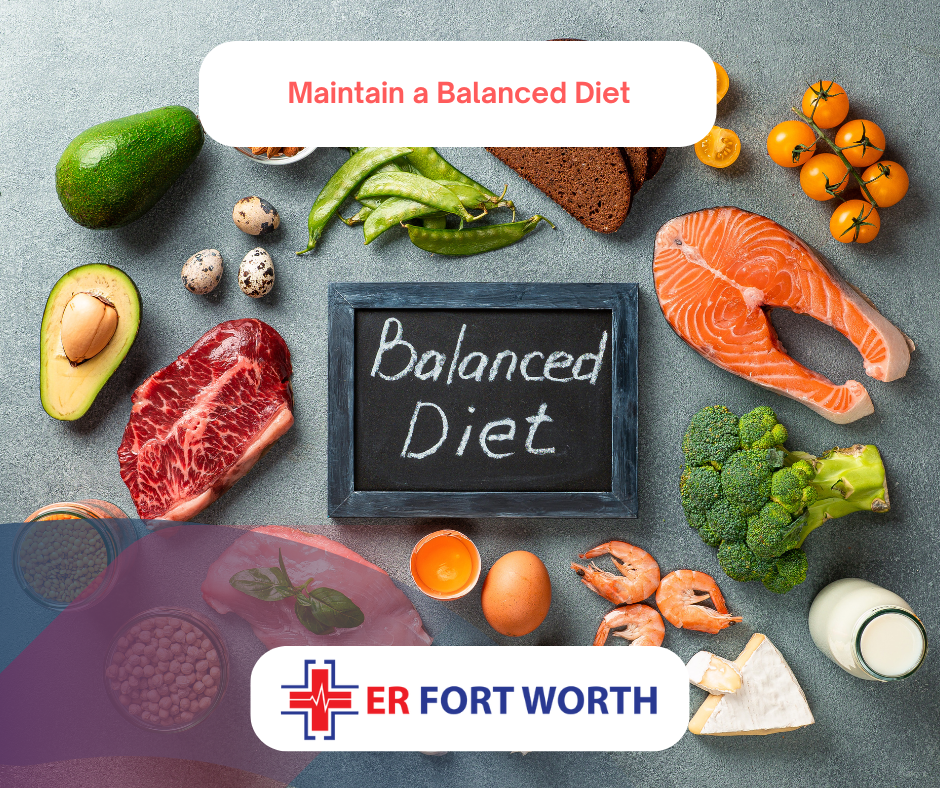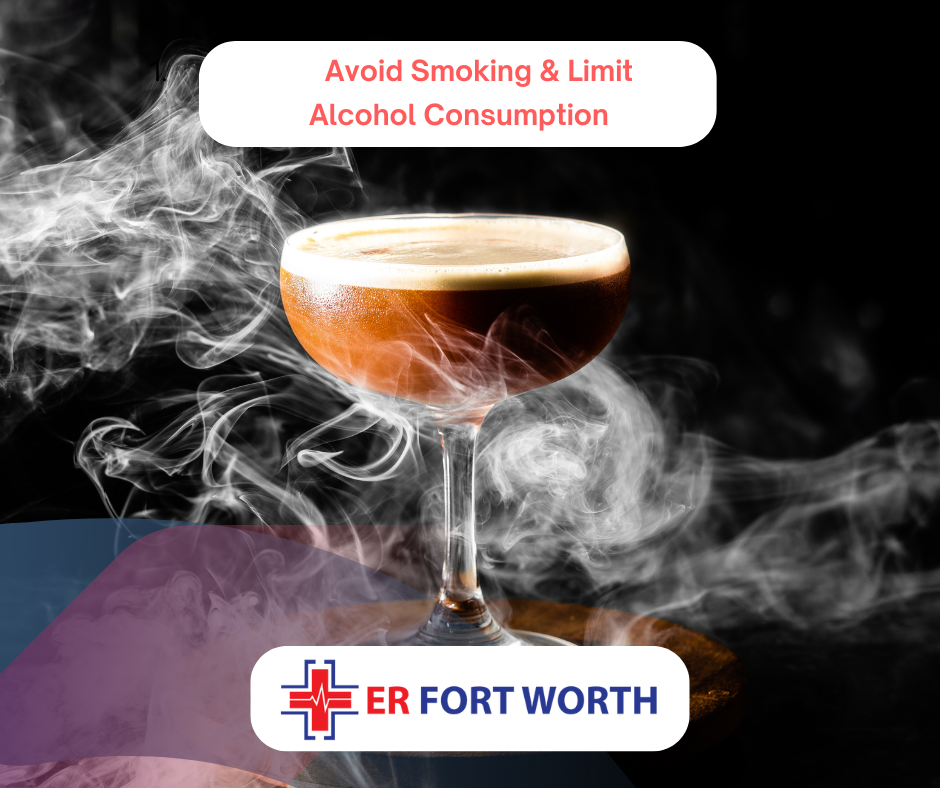Chest and abdominal pains can be more than just momentary discomforts. But what if you could prevent these alarming sensations before they start?
It’s possible, and it doesn’t require drastic measures. From what you eat to how you manage stress, there are simple lifestyle changes that can lead to big relief.
Let’s explore these lifestyle changes for preventing chest and abdominal pain and how they can keep your pains at bay.
Comprehensive Guide to Chest and Abdominal Pain
9 Lifestyle Changes to Prevent Chest and Abdominal Pain
Maintain a Balanced Diet

A heart-healthy diet supports both cardiovascular and digestive health. Focus on fruits, vegetables, whole grains, and lean proteins. These foods provide essential nutrients and fiber, which are key lifestyle changes for preventing chest pain.
Avoid foods high in saturated fats, sodium, and processed sugars, as these can contribute to heart disease and digestive issues. Instead, opt for fiber-rich options like oats, beans, and leafy greens to regulate bowel movements and prevent abdominal discomfort.
Practice Relaxation Techniques
Stress can trigger both chest and abdominal pain. It increases heart rate and muscle tension, causing chest discomfort. Simultaneously, it affects digestion, leading to abdominal cramps and bloating.
Incorporate stress management techniques such as yoga, meditation, deep breathing exercises, or mindfulness into your routine. These lifestyle changes can significantly reduce the physical symptoms associated with stress.
Engage in Regular Physical Activity
Physical activity is crucial for preventing pain and maintaining overall health. Regular exercise strengthens the heart, improves circulation, and supports weight management, reducing the risk of chest pain.
Additionally, physical activity promotes regular bowel movements, preventing digestive issues like constipation and bloating. Aim for at least 150 minutes of moderate exercise per week. Activities like walking, swimming, or cycling are excellent options for these lifestyle changes.
Stay Hydrated
Adequate hydration is vital for both cardiovascular and digestive health. Proper water intake helps maintain blood volume and pressure, which is important for heart health.
Hydration also supports digestion and prevents constipation, a common cause of abdominal discomfort. Aim for at least eight glasses of water daily. Limit beverages that may irritate the stomach or increase acid reflux, such as caffeinated drinks and alcohol. Staying hydrated is a simple but effective lifestyle change.
Avoid Smoking & Limit Alcohol Consumption

Smoking is a major risk factor for heart disease. It damages blood vessels and reduces oxygen flow to the heart, increasing the risk of chest pain. Smoking also irritates the digestive tract, potentially causing acid reflux or other abdominal discomforts.
Quitting smoking and moderating alcohol intake are significant lifestyle changes that can reduce the risk of both chest and abdominal pain. Limit alcohol to no more than one drink per day for women and two for men.
Eat Smaller, More Frequent Meals
Large meals can strain both the digestive system and the heart. Eating smaller, more frequent meals helps prevent acid reflux and bloating, reducing the likelihood of abdominal pain.
This approach also helps manage blood sugar levels, contributing to better heart health and reduced risk of chest discomfort. This lifestyle change supports both digestive and cardiovascular health.
Identify and Avoid Trigger Foods
Certain foods can trigger both chest and abdominal pain, especially for those with food intolerances or conditions like acid reflux or IBS. Common triggers include spicy foods, fatty foods, caffeine, and carbonated drinks.
Keep a food diary to identify and avoid your personal triggers. This practice can help manage symptoms effectively.
Avoid Lying Down After Meals

Lying down immediately after eating can lead to acid reflux, causing both chest and abdominal pain. To reduce this risk, wait at least 2 to 3 hours after eating before lying down or sleeping. Elevating your head while sleeping can also help prevent acid reflux, making this an important lifestyle change.
Regular Health Check-Ups
Regular check-ups with your healthcare provider can identify potential issues before they become serious. Monitoring your blood pressure, cholesterol levels, and digestive health markers are crucial lifestyle changes for early detection and effective pain management.
Conclusion
Adopting these lifestyle changes can significantly reduce your risk of both chest and abdominal pain. Understanding the causes of abdominal pain and chest pain—such as dietary habits, inactivity, stress, and underlying medical conditions—can help you implement effective preventive measures.
Focus on a balanced diet, regular activity, stress management, and avoid known triggers for overall health improvement. Remember, even small changes in your daily routine can lead to significant health benefits over time.
If you experience persistent or severe pain, it’s important to consult a healthcare professional for a personalized evaluation and treatment plan.
At ER of Fort Worth, we provide exceptional emergency care to our community. Our highly-trained medical staff is available 24/7, to ensure you receive the best care when you need it most.
Request an Appointment for Chest and Abdominal Pain
FAQs
Can abdominal pain be a heart attack?
Abdominal pain can sometimes indicate a heart attack, especially if it’s accompanied by other symptoms like chest pain, nausea, or shortness of breath.
How do you relieve stomach and chest pain?
You can relieve your stomach and chest pain by drinking warm water or herbal teas. Consuming ginger may alleviate and prevent gastrointestinal symptoms like bloating and gas.
Can stress cause chest and abdominal pain?
Stress can cause both chest and abdominal pain due to muscle tension, increased acid production, and the body’s stress response.




